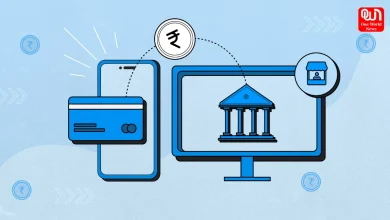RBI Governor calls to Ban Cryptocurrency: ‘Cryptocurrency akin to Gambling’

RBI Governor Shaktikanta Das reiterates the stance to ban cryptocurrency
Shaktikanta Das, the RBI Governor in an interview repeated the stance to ban cryptocurrency. He talked about how crypto is not a financial product as it has no underlying value. “The volatility in prices is based on the make-believe concept where a particular crypto’s price can go up or down. So, anything that comes without any underline whose valuations is entirely dependent on make-believe is just 100 per cent speculation or it can be bluntly termed as gambling.”
Read More- Who is behind Joshimath land crisis?
Cryptocurrency in India is one of the hugest economic markets. The past few years have seen phenomenal growth in the crypto market worldwide. The sudden rise and benefits this investment gave to its early investors have been exceptional.
Bitcoin, when it was launched in 2010 was just US$0.0008, and today it is worth 16,651.90 USD. That is probably numbers we cannot even imagine! But, in the midst of all this, there is a bigger question on the legality of cryptocurrency in India. Is it legal? What does the Government say about cryptocurrencies? How is it regulated in India?
To answer some of these basic questions, let us look further.
So, what are cryptocurrencies?
We have heard the word thrown around quite a bit these days, but do you know what cryptocurrency is?
Read More- Joshimath sinking: Uttarakhand CM ordered an immediate evacuation
A cryptocurrency is a digital form of currency that is used for online transactions. It works on a decentralized system and is monitored by a peer-to-peer internet protocol. The use of distributed ledger technology, also known as a blockchain, is what makes cryptocurrencies safer.
The Crypto market in India
Bitget, a leading cryptocurrency exchange, has shown a growth of 200% in digital assets’ trading volume in India since May 2022 alone. This shows the massive growth and opportunity this market has in India.
The population of youth in India is massive. This massive population is also responsible for the large-scale adoption of crypto as they are tech-savvy and know how to use this asset to their benefit.
The Current Status
Currently, crypto assets are not regulated in India. We do not have a law to govern this Virtual Currency. However, in the Union Budget of 2022-23, the Government imposed a tax on Virtual Digital Assets and their transactions. The tax stands at a flat 30% on income incurred from the transfer of Virtual Digital Assets (VDAs). That is not all, a TDS (tax deducted at source) of 1% will be levied if a person is buying VDAs or cryptocurrency.
The Cryptocurrency and Regulation of the Official Digital Currency Bill, 2021 is still under discussion and has not been passed by The Parliament.
The Government is currently looking to work together internationally to collaborate on crypto. Finance Minister Nirmala Sitharaman stated that one of India’s agendas during the G20 Presidency would be to develop an SoP (standard operating procedure) for crypto.
Read more: New Bank Rules 2023: Have you read these new bank locker rules starting January 1, 2023
The Reserve Bank of India (RBI) has launched a pilot version of its Central Bank Digital Currency and is looking at its usability across the country. The reason for this launch was motivated by the rising use of Cryptocurrencies and Bitcoins as a means of transaction. The CBDC will be backed by the central bank, making it a legal tender, unlike the cryptos.
Shaktikanta Das, the Governor of RBI recently said at an event that cryptocurrencies should be banned in India. He added “Mark my words, the next financial crisis will come from private cryptocurrencies… After the FTX episode, don’t think we need to say anything more on crypto.”
The Government has been very clear on its stance on Crypto, but there is still a need to have better legislation that either completely bans it or regulates the market. Issuing central bank digital currency is one way to combat this issue, but not a complete solution.
There is no guarantee that with the launch of CBDC it will proliferate into the masses like crypto already has. We need a better roadmap to make sure that we prevent a financial crisis. The huge scale accessibility and volatility of this virtual currency are also a cause for worry. The safety offered in terms of anonymity of payments is a huge threat to the safety of the country. The use of crypto for illegal activities is something we cannot overlook.







